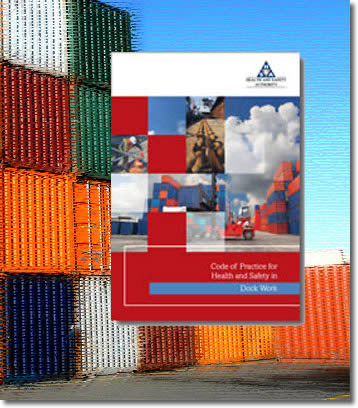The Docks Code of Practice
The Code of Practice was written in consultation with representatives from the Irish ports and docks sector and from the relevant trade unions. The Code applies to commercial ports and dock premises, harbours and canals where goods and passengers are transported, handled or held for the purpose of loading or unloading on or off ships. This includes container terminals, dry and liquid bulk terminals, ferry and passenger terminals, Roll On-Roll Off (Ro-Ro) Operations and general cargo docks with the exception of port facilities already subject to Control of Major Accident Hazards Involving Dangerous Substances Regulations (commonly known as the COMAH or SEVESO Regulations).
Focus of the Code

The focus of the Code is on dock work which is the loading, unloading, handling, checking and inspecting of cargo directly into or from a ship within the confines of a port. It also includes work incidental to loading and unloading activities in the port area but does not cover work activities within the port area already covered by general health and safety legislation such as office, warehouse, port marine or maintenance activities.
Sections Within the Code
Included in the Code are sections on the health and safety legislation applicable to ports and docks, responsibilities of various parties within ports and docks, managing health and safety in ports, the general arrangements for port workplace safety, hazards on docks and hazards to shore workers on board ships. The Code also covers the various port operations and ship types covering container operations, Ro-Ro operations, solid bulk, liquid bulk and break bulk operations.
Also outlined are some International Maritime Codes and national legislation which are enforced by the Department of Transport, Tourism and Sport but are also of relevance to managing health and safety in ports and docks.
The Code of Practice came into effect on the 1st January 2016.